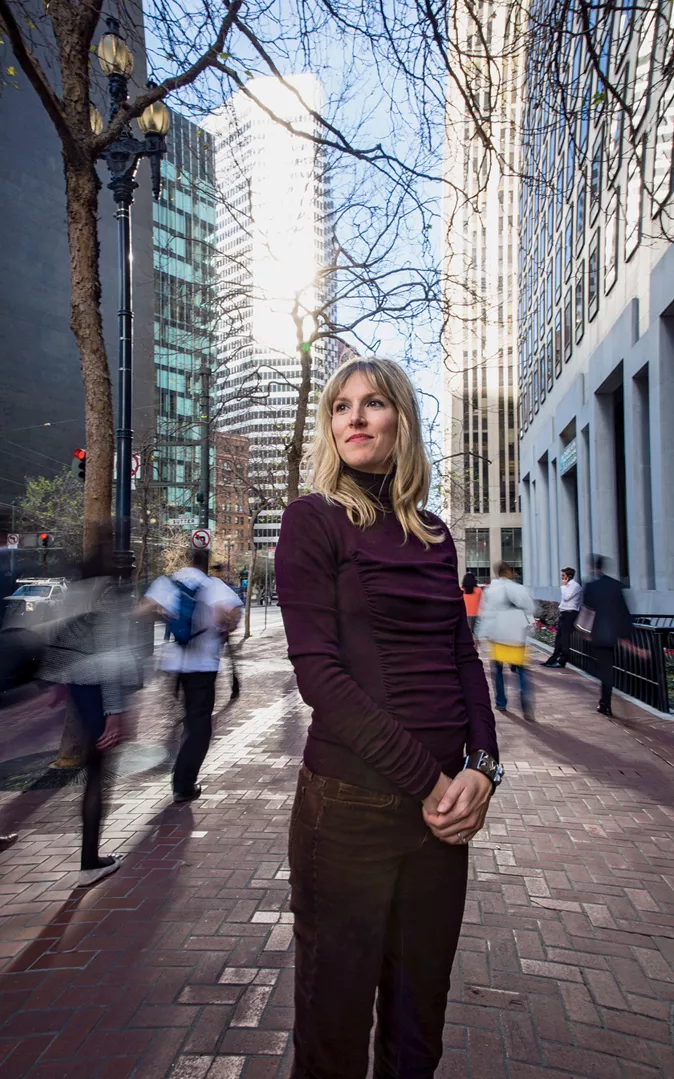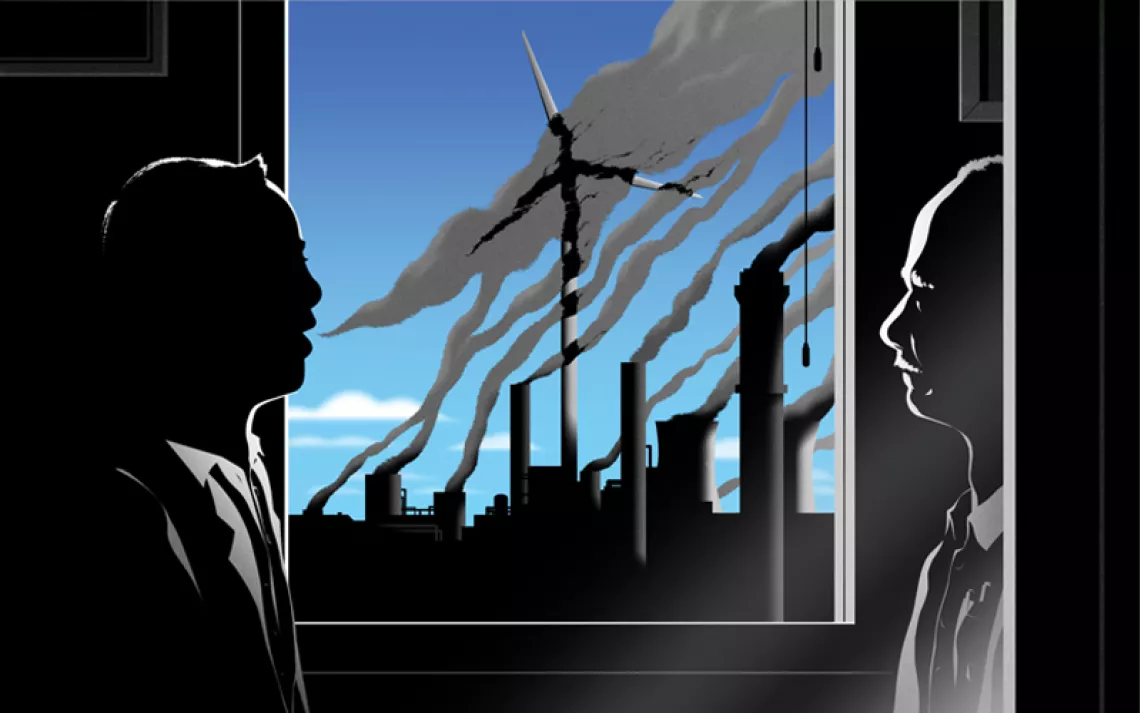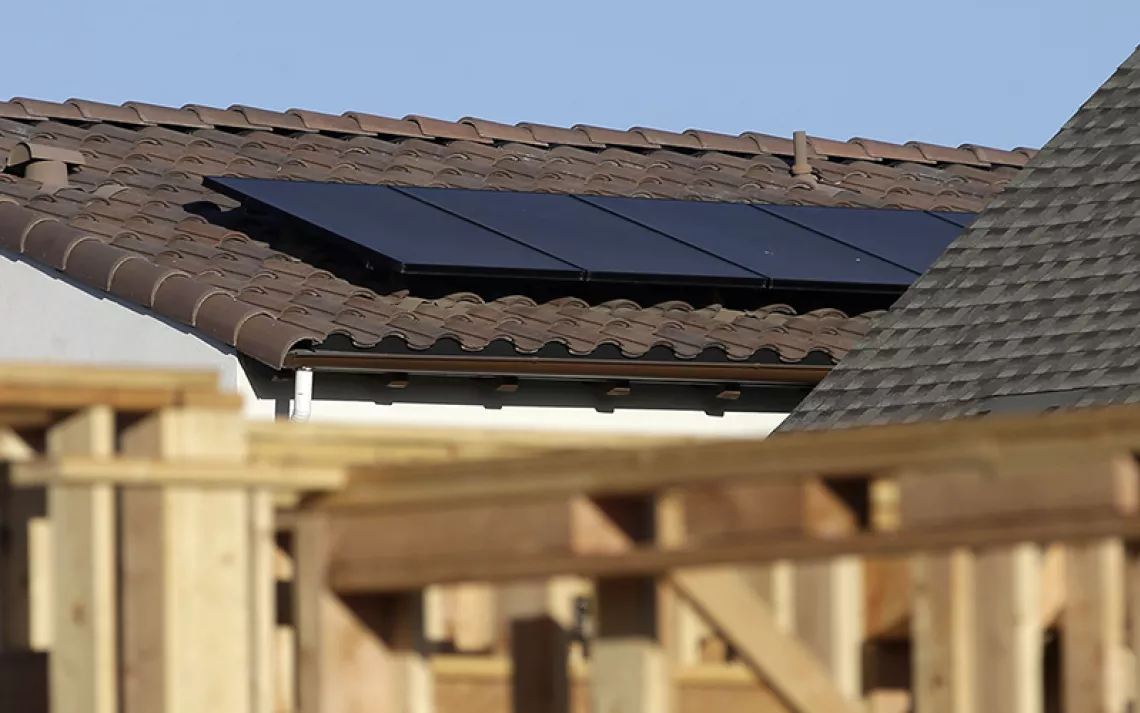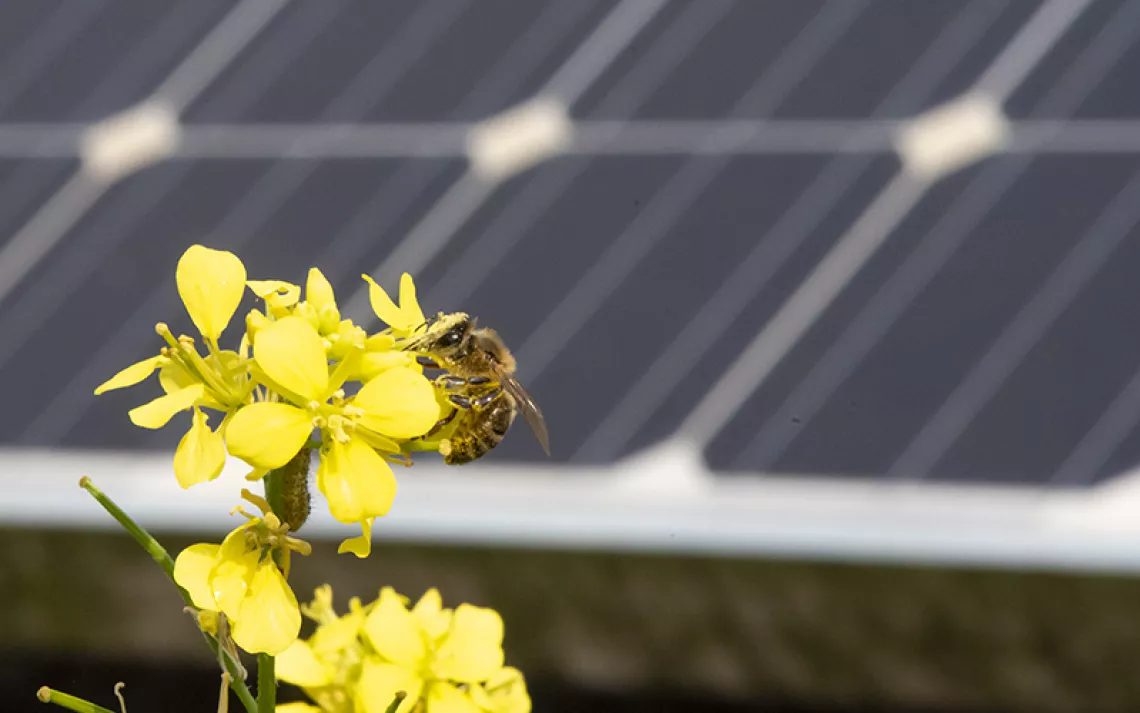CEO of Sunrun Explains the Future of Solar Power
Every day, the clean energy revolution is creating new jobs for American workers. As part of an ongoing series, Sierra asked one of them to tell us her story.

Lynn Jurich, CEO of Sunrun, in San Francisco. | Photo by Carl Costas
Sunrun pays to install a solar system on a person's roof. There's no up-front cost for homeowners. They then buy the power from us, typically at 20 percent less than what their utilities charge. We take care of all the maintenance. Homeowners save money immediately. We're in 12 states now. Solar leasing tends to be competitive in markets where power prices are expensive—the Northeast, Southwest, Hawaii. As costs keep coming down, we'll be competitive in more states.
Sunrun's cofounder, Ed Fenster, and I started the company because we had seen this business model—it's called solar-as-service, power-purchase agreements (PPAs), or solar leasing—work for businesses. When Walmart entered into solar PPAs, a lightbulb went off for us: If Walmart is doing this, it's got to be cost-effective. That's the key for homeowners, too. Nobody thought it would work at the residential level. People think of energy as a big asset that you send over poles and wires. The strength of the "distributed" model is that you can make energy on-site, which is much more efficient than having to transport it and lose energy along the way.
For three to four years, it was unclear whether the company was going to make it. We benefited from the fact that solar's costs have come down faster than we would ever have guessed. Today, nearly 70 percent of homeowners with solar get it through the solar-as-service model. A lot of people think that since oil is cheap and we've got all this natural gas, residential energy prices will come down. But energy prices are tied to investments in infrastructure and the grid, and this country is underinvested in those areas.
If I was motivated by financial gain, my career would have accelerated faster doing anything else. But I love trying to simplify big, messy things. I was attracted to better, more efficient, cleaner energy. By 2006-07, it became clear that solar power would change how energy gets created and deployed.
Solar is such a win-win for job creation and customer savings that it's going to continue to grow at substantial rates. In California, the solar industry employs more people than the state's three big investor-owned utilities—54,000 jobs versus 50,000 for the three utilities. About 0.3 percent of homes across the country have solar. When wireless phones were starting out, many people said they would replace only 2 to 3 percent of landlines. Certainly that hasn't been the case. Solar has the same potential.
Over the last few years, the traditional providers of electricity have challenged us in about 40 states, trying, for example, to impose fixed charges on solar customers. We've won all the major challenges. We have the facts on our side, and the public, utility commissioners, and politicians agree with us.
We have to plan our business for all eventualities. For instance, the federal solar investment tax credit dropped from 30 percent to 10 percent in two years. What we have in our favor is that our costs have declined about 10 percent every year.
I'm so head-down in my work that I hardly perceive the media attention I get for being a female CEO. But it's important for people to see role models. Part of our challenge as women entrepreneurs is that the venture capital community that typically funds these businesses tends to be heavily male. It's subconscious. You fund people like you. It's a great thing when more women in these roles become visible.
I have yet to achieve that wonderful word "balance." But I love the outdoors. My husband calls me a "supertaster" of clean air and water. We just took a trip to New Zealand, hiking the Routeburn and Queen Charlotte Tracks.
I'm expecting my first child. We'll see how that changes things. The natural world is a gift as well as a human right. Having a child makes it all that much more personal. Not that I needed to up the intensity.
Jurich is a former director of The Sierra Club Foundation. She and her company, Sunrun, have donated to the Sierra Club and The Sierra Club Foundation. This article was funded by the Sierra Club's Beyond Coal campaign.
 The Magazine of The Sierra Club
The Magazine of The Sierra Club







